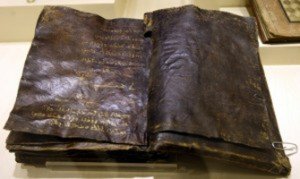13 June 1943, Horsforth, Yorkshire, England, UK
Birth Name
Malcolm John Taylor
Nickname
Mick
Height
5′ 8½” (1.74 m)
Mini Biography
Malcolm John Taylor was born on June 13, 1943 in Leeds, England, to working-class parents Charles and Edna Taylor. His father was a publican and an alcoholic. Malcolm hated his parents’ ways and fought against it. His father was keen to send his son to private school to give him a good start in life, so Malcolm was packed off to boarding school at 11. He attended the Tunbridge Boarding School and the Cannock House School in Eltham, Kent. At school, he was beaten with the slipper or cane every Monday for his waywardness. Whilst at school, he decided that he wanted to become an actor; it was also around this time that his love for race cars began. He attended the London Academy of Music and Art to study acting. Meanwhile, he worked at his parents’ pub but lost his job when the pub went bankrupt, his father drinking all the profits. He then had a variety of jobs, from coffee salesman to messenger.
His first big-screen role was in Poor Cow (1967), although his two-minute scene was ultimately cut from the completed film. Soon after, he caught the attention of director Lindsay Anderson who cast him in the role of a rebellious student in his film If…. (1968). The film catapulted Malcolm to stardom in Britain but failed everywhere else. He was so enthusiastic about the film’s success that he wanted to do another right away. He began writing what would become the semi-autobiographical O Lucky Man! (1973). Meanwhile, he starred as the infamous Alex DeLarge in Stanley Kubrick’s controversial A Clockwork Orange (1971), a role that caused him to be typecast as a manic psychopathic villain. In early 1976, he spent nearly a year working on what would later be one of the most infamous films of all time, the semi-pornographic Caligula(1979), financed by Penthouse magazine founder Bob Guccione. Around that time, the British film industry collapsed, forcing him to flee to America to continue working. His first American film was Time After Time (1979). He then did Britannia Hospital (1982), the last part of Lindsay Anderson’s working-class trilogy that started with If…. (1968).
In the mid-1980s, the years of alcohol and drug abuse, including $1000 a week on cocaine, caught up with him. Years of abuse took its toll on him; his black hairs were now grey. Looking older than he really was, nobody wanted to cast him for playing younger roles. The big roles having dried up, he did many B-rated movies.
The 1990s were kinder to him, though. In 1994, he was cast as Dr. Tolian Soran, the man who killed Captain James T. Kirk in Star Trek: Generations (1994). He was back on the track, playing villains again. He played another in the classic BBC miniseries, “Our Friends in the North” (1996). Today, with more than 100 films under his belt, he is one of the greatest actors in America. He still does not have American citizenship, but he likes the no-nonsense American ways. He currently resides in the northern suburb of Los Angeles.
Spouse
|
Kelley McDowell
|
(12 November 1991 – present) 3 children
|
|
Mary Steenburgen
|
(29 September 1980 – 1 October 1990) (divorced) 2 children
|
|
Margot Bennett
|
(21 April 1975 – 15 September 1980) (divorced)
|
Trade Mark
Raspy deep-throated voice
Often plays immoral characters or outright villains
Often plays authority figures
His characters are often fiendishly intelligent and ruthless
Trivia
His first wife, Margot Bennett, was Keir Dullea’s ex-wife. Keir was the main character in Stanley Kubrick’s 2001: A Space Odyssey (1968), while McDowell was the main character in Kubrick’s next film, A Clockwork Orange (1971).
Father of actress Lilly McDowell, born in 1981.
Uncle of Alexander Siddig (“Star Trek: Deep Space Nine” (1993)).
Father of producer/director Charlie McDowell, born in 1983.
Along with Sir John Gielgud, he is one of only two actors to play both King Arthur and Merlin. He played King Arthur in Arthur the King (1985) (TV) and Merlin in Kids of the Round Table (1997).
13 of his films shown at retrospective tribute at NYC’s Walter Reade Theatre in May 2002, where he introduces the least known of these, The Connection.
Has said that his favorite actor of all time is James Cagney.
Received death threats from overzealous Star Trek fans after his character killed Captain Kirk in Star Trek: Generations (1994).
He and his wife, Kelley McDowell, had a son, Beckett Taylor McDowell (born January 29, 2004).
Claims Gangster No. 1 (2000) to be his best work since A Clockwork Orange (1971).
Was the first well-known actor to appear non-animated and in the flesh for “South Park” (1997) because he is one of Trey Parker’s favorite actors and he was specifically requested.
Has appeared in three different films involving time travel: Time After Time (1979), Star Trek: Generations (1994) and Just Visiting (2001).
His performance as Alex DeLarge in A Clockwork Orange (1971) was ranked 100 on the list of the “100 Greatest Film Performances of All Time”.
His performance as Alex De Large in A Clockwork Orange (1971) is ranked #68 on Premiere Magazine’s “100 Greatest Movie Characters of All Time”.
Lives in Santa Barbara, California.
Owns another home in Britain and a summer retreat in Tuscany.
Good friends with Christine Noonan and David Sherwin.
Was captain of the rugby and cricket teams at his high school.
As he wanted to get into the SAG, he took his mother’s maiden name McDowell because there was another British actor called Malcolm Taylor.
Born to Charles Taylor, a pub owner, and his wife Edna McDowell, a hotelier, he grew up with an older (Gloria) and a younger sister.
He and his wife, Kelley McDowell, had a son, Finnian Anderson McDowell (born December 23, 2006).
His job as a coffee salesman provided inspiration for O Lucky Man! (1973).
In an interview, he said that a magazine named him “King of Punk” after his appearance in “A clockwork orange”. This is probably because of the punk references that appears in the movie, such as the droogies costume style.
Has been a friend of Aubrey Morris ever since they worked together in A Clockwork Orange (1971).
Announced that his wife, Kelley McDowell, is expecting their third child, a boy, in January 2009 [September 8, 2008].
Third son, Seamus Hudson McDowell, was born on January 7, 2009.
When he went to meet with Stanley Kubrick for the first time, he had little knowledge of film and confused him with Stanley Kramer. In preparation, McDowell’s friend and mentor, Lindsay Anderson, showed him all of Kubrick’s films from Paths of Glory (1957) to 2001: A Space Odyssey (1968).
As a schoolboy, Malcolm was so bored having to listen to long, tedious speeches by minor local dignitaries at official school functions, when he became a star, he took his revenge. Asked to give the keynote speech at Cannock School’s annual Open Day in 1969, he flew all the way from the USA to attend. Before a packed assembly, he simply announced “I hereby pronounce this Open Day open” and sat down.
He has a fear of reptiles. When Stanley Kubrick learned this while shooting A Clockwork Orange (1971), he introduced Basil, Alex’s pet snake.
Is 24 years older than his wife Kelley.
Personal Quotes
The best thing I did was abuse myself when younger – I dabbled in everything, cocaine, booze, women – because now I don’t have to do it anymore.
There are no great scripts – just great films.
[When asked what his favorite Stanley Kubrick film was]: “A Clockwork Orange (1971)! I never saw any of the others.”
[Reflecting on A Clockwork Orange (1971)]: “It’s a remarkable film that has survived as such a classic and I’d be a raving idiot not to be thrilled with that.”
He didn’t want me at first, told me about the big-name actor he could get, how he was taller than I was – I’m five eight and a half – but I said, ‘That’s nothing, I can stand on a box.’
I did a picture I loved called Time After Time (1979), and the people who saw it loved it. We had a big opening in Toronto at the Festival of Festivals – huge – and they gave us a fabulous reception. Great city, Toronto – Mary (Mary Steenburgen) and I loved it there. Great restaurants, great people. The studio hired these so-called ‘experts’ to tell them how to market the film. And these silly asses took a poll to determine a ‘recognition’ factor. And more people recognized Jack the Ripper, which was David Warner’s role in the movie, than H.G. Wells, who I played in the movie. Hardly anyone recognized the name H.G. Wells, in fact. So they decided to go with a campaign that stressed Jack the Ripper, which was all well and good except that people didn’t want to see another movie about Jack the Ripper, and they stayed away in droves. I’ve got a big piece of that film, but I haven’t seen a penny, and I probably never will. However, I did meet my wife making that movie, so I don’t really mind!
I got to be the hero in that one. It’s a very whimsical part, a wonderful part, H.G. running after Jack the Ripper (David Warner) and meeting this modern woman (Mary Steenburgen). Of course, it’s very special to me because I met Mary ((Mary Steenburgen), we got married, and we had two children. Even though we’re not together now, she is the mother of my children and that film is where we met. It’s also a damn good film! – On Time After Time (1979).
I think that’s crap. I think that’s pathetic. Go get another job. Listen: We’re in the business of illusion. We are illusionists. Seriously, that is absolutely pathetic. You’re telling me to do a love scene, you actually have to have penetration? That’s absolutely beyond pathetic. If you can’t think of any way of making that exciting, you’re in the wrong job. That’s what I think. I remember when they did Don’t Look Now, and they thought that Donald Sutherland and Julie Christie actually made love on camera. It’s laughable. They were just two extremely gifted actors who made everybody believe they did and ran with it. There was no way there was penetration on the set. No way. Because that crosses over into a porno picture, and I don’t care which way you dress it up.- on unsimulated sex scenes in mainstream films, often sourced to his film Caligula(1979).
[on playing psychiatrist Dr. Samuel Loomis in Halloween (2007)] I want to make Loomis a man with a tremendous ego. I’ve met some of these doctors through the years, where there is more ego in it than there is [interest in what’s] best for the patient, and if they can get a book out of it – which of course he has done – it’s a bestseller, and that’s so much better.
[on Donald Pleasence] I did know Donald. I met him in London at the Royal Court Theatre. He was a tremendous actor – he played those wonderful sinister parts. I particularly remember him in two performances: He was in two great plays, one was written by Robert Shaw calledThe Man in the Glass Booth (1975) and the other was a Harold Pinter play, _The Caretaker_.
The definition of insanity in Texas is so insane that it’s impossible to be insane in Texas.
[on Stanley Kubrick] Probably one of the five greatest directors that ever lived.
There’s nobody who’s ever going to come close to John Ford.
[on Halloween (1978)] John Carpenter’s a master, and he made an extraordinary film.
[on horror movies] I’m not that keen on them, to be honest. I find them tedious, most of them, really kind of schlocky and terrible character development and thin storylines. The ones that I’ve seen, they’re usually pretty bad because they’re very low budget.
[on Wes Craven and The People Under the Stairs (1991)] I went to see the film and I was just riveted by this thing. I thought, ‘My God, this guy is brilliant. I’d love to work with him.’
[on playing the character Alex DeLarge in A Clockwork Orange (1971)] I don’t think I have ever had that much fun doing the work. He was a wicked son of a bitch.
[on Rob Zombie] He’s got a definite point of view. He has just done horror films because that’s all they want him to make. For him to get out of that, which he will, is going to be tough. He is a far better director than a horror movie director. The way he looks at the material and the way he gives you reign but also gives you boundaries.
[Referring to Lindsay Anderson] I loved him, more than any other man, ever. More than my father I think. I loved him.
[At ZomBcon] It is true I’d rather get a hole in one than win an academy award.
[on Stanley Kubrick and A Clockwork Orange (1971)] I was fortunate enough to work with Stanley before his infamous paranoia set in (referring to Kubrick’s obsession over every possible variation on a scene, and over everything that might – or at least could – go wrong while filming). One complex technical shot, on the waterfront, gave us so much trouble that 50 takes were required…so Stanley did have an excuse. Nonetheless, after Take 49, I asked him if we couldn’t call this Take 1-A. “If I have to hear ‘Take 50,'” I complained, “I feel I’m going to crack.” But Stanley looked me in the face and said, very flatly, “No.” So “Take 50” it was. Well, I *tried* to reason with him, anyway.
Where Are They Now
(January 2007) He is working with Rob Zombie on Rob’s new version of Halloween. Malcolm will play “Dr. Loomis”.
(April 2007) He is working in the NBC series “Heroes” (2006/II), playing the role of the powerful “Mr. Linderman”.

Terimakasih telah membaca di Piool.com, semoga bermanfaat dan lihat juga di situs berkualitas dan paling populer Aopok.com, peluang bisnis online Topbisnisonline.com dan join di komunitas Topoin.com.




















